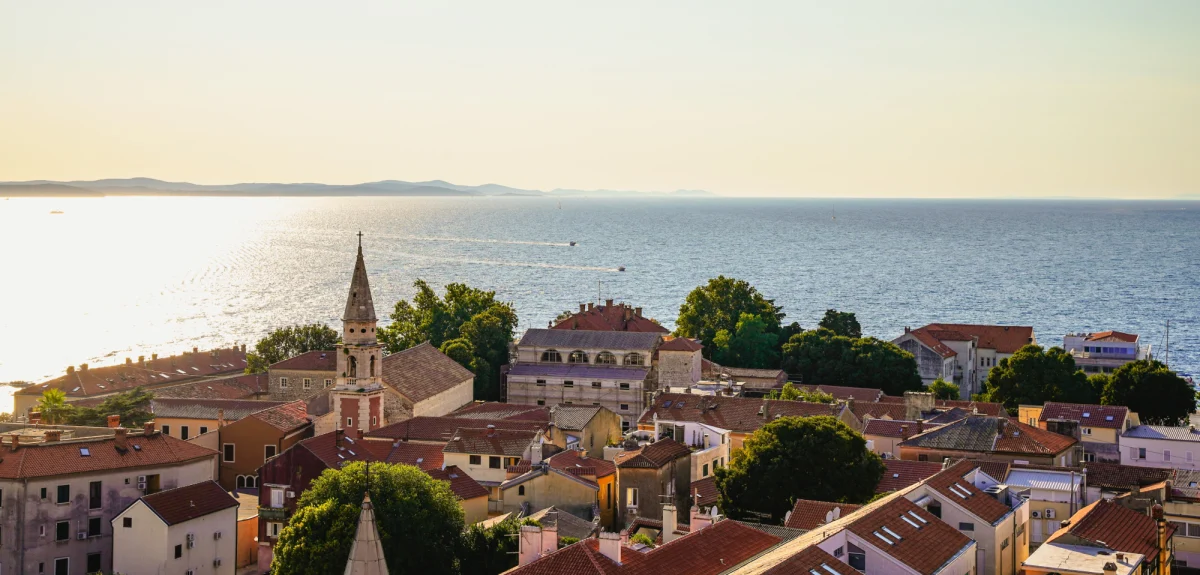
Seven sights you must explore this summer in Zadar, Croatia
One of Dalmatia’s most noble cities.
With its car-free old town sitting compact on a fortified peninsular that juts out into the glistening Adriatic, Zadar is one of Dalmatia’s most noble cities. Founded by the Romans as Iadera in 59BC, through the centuries it has formed part of the empires of the Byzantines, the Venetians, Austro-Hungary and Yugoslavia.
The old town is a labyrinth of narrow, cobbled alleys, opening onto elegant Venetian-era piazzas. Today it’s packed with small hotels and apartments, cafés, quirky bars, seafood restaurants and pizzerias. Real Madrid footballer Luka Modrić hails from Zadar and celebrity visitors include actors Jean Reno and Brad Pitt.
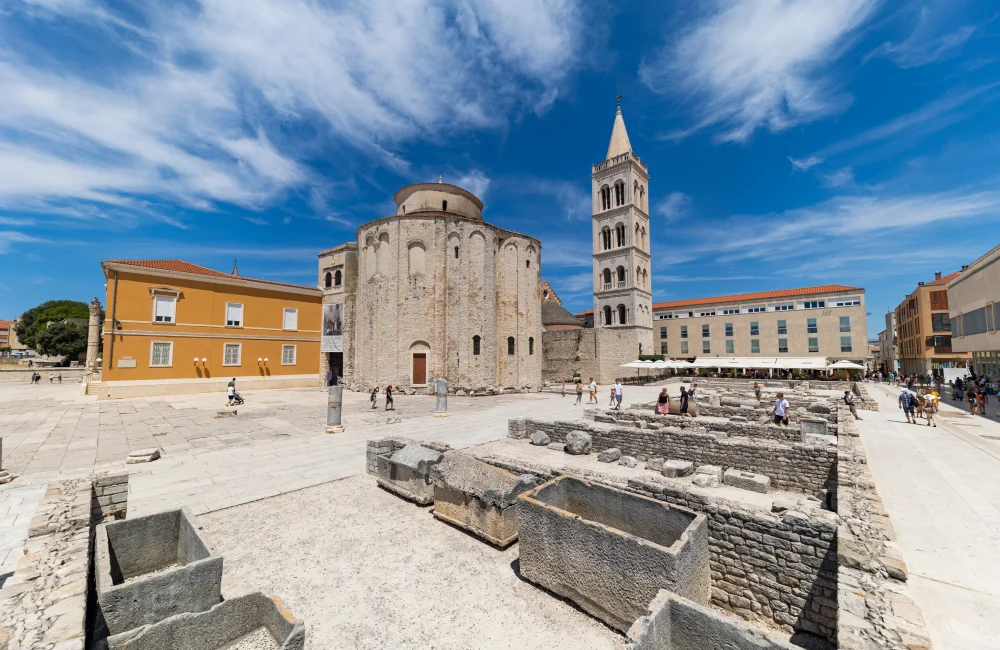
The heart of Roman life
Roman Forum
The forum, which dates back to the 1st century BC would have been the heart of Roman life, where citizens would trade, discuss politics and worship at the temple. Hidden for centuries, it was uncovered in 1930, when ancient paving stones were found during excavation. Today it’s once again a popular meeting place, overlooked by the 9th century Byzantine Church of St Donatus, the 1970’s Archaeological Museum (displaying medieval, Roman and prehistoric finds) and several open-air cafés.

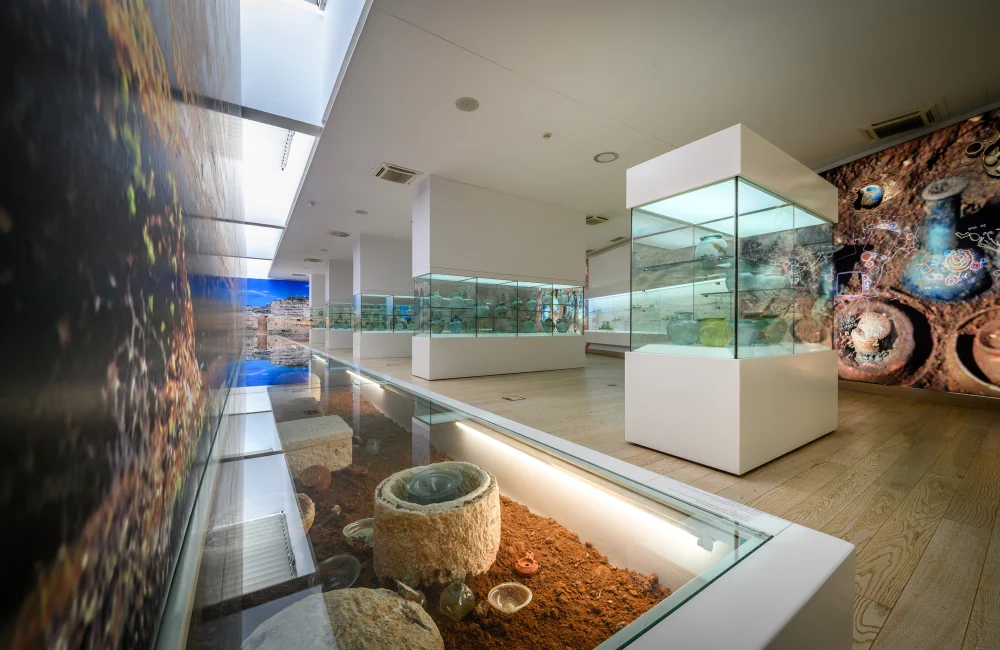
All about Roman glassware
Museum of Ancient Glass
Immediately east of the old town, in the 19th century Cosmacendi Palace, this lovely museum displays hordes of Roman glassware. You’ll see goblets, jars, bowls, beads and vials, in beautiful shades of blue, green and pink that were discovered by archaeologists in Zadar and across Dalmatia. You can watch a glass-making demonstration and visit the gift shop that stocks replicas of ancient glassware.
Open: Summer daily 09:00-21:00. Winter Mon-Sat 09:00-16:00, Sun closed.
Entrance 6€

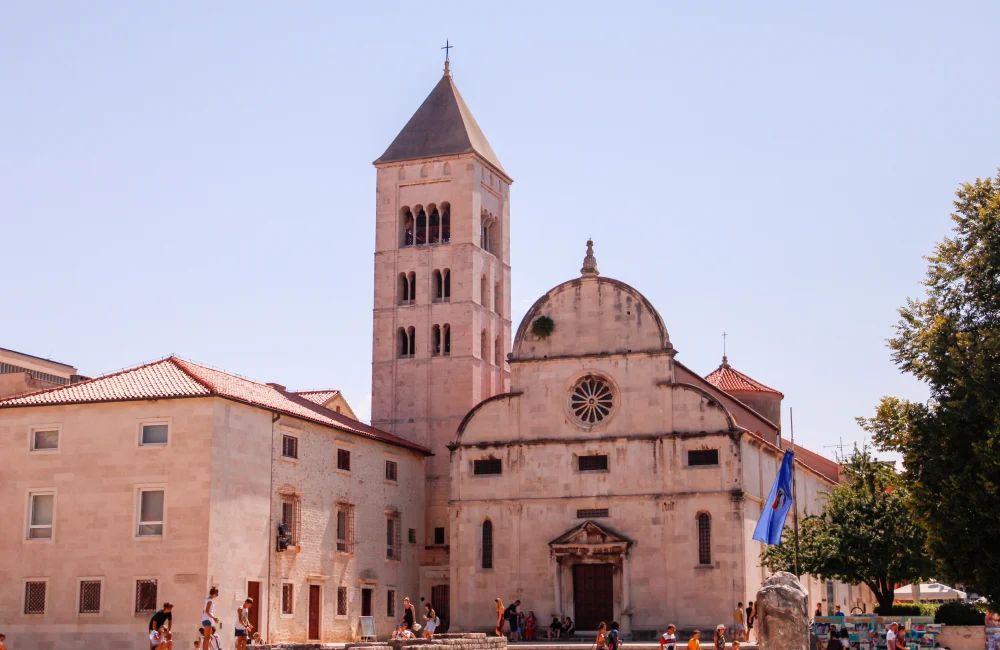
Views over Zadar
Cathedral of St Anastasia
Behind the Roman Forum on the site of an ancient basilica, Zadar’s 12th century Romanesque cathedral bears a splendid façade with decorative blind arches and two rose windows. Inside, you can see the marble sarcophagus containing the ashes of St Anastasia (brought here from Constantinople in the 9th century), after whom the cathedral is named. Best of all is the bell tower. Climb 180 steps to the top for views over Zadar’s terracotta roofs, the sparkling Adriatic and the blissful islands.

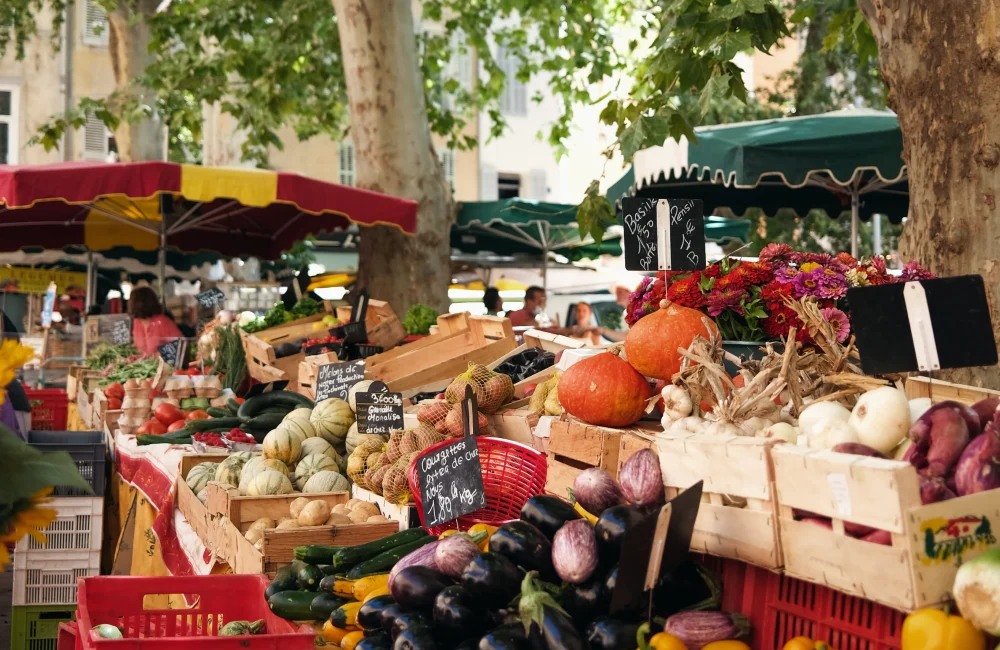
Open-air Market
Gradska Tržnica
Each morning, stall-holders from Zadar’s rural hinterland display local seasonal fruit and vegetables at the colorful open-air market. Expect strawberries, cherries, spinach and asparagus in spring, tomatoes, zucchini, figs and peaches in summer. Also, see the adjoining covered fish market, where glistening sea bream, sea bass, monkfish, octopus and shrimps, delivered by boats at dawn, are arranged on mounds of crushed ice.

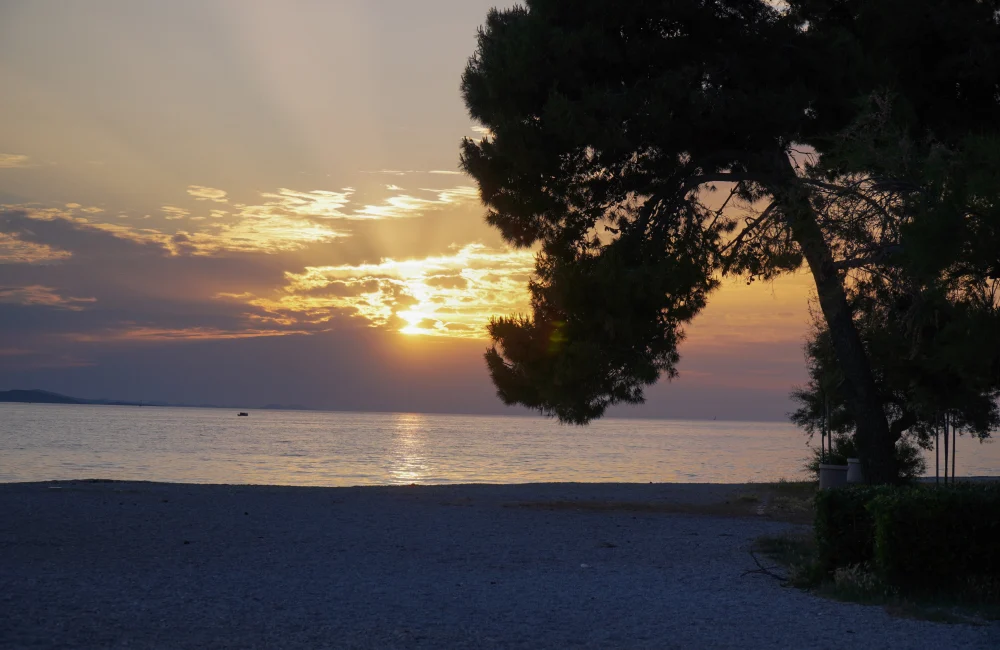
The clear blue sea
Kolovare beach
A 10-minute walk south of Zadar’s old town, this sand and pebble beach is backed by pine trees. You’ll find sun-beds and parasols, showers, sea kayaks for hire, a beach volley court, a playground and several bars serving drinks and snacks. Lifeguards are on duty in summer, and there’s a ramp affording easy access into the sea for disabled swimmers.

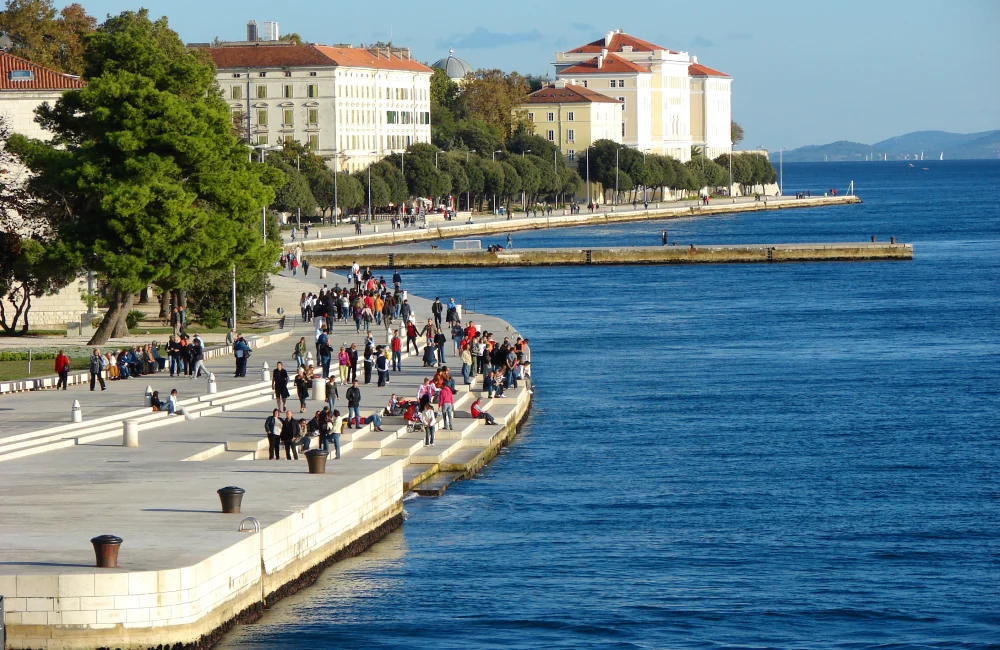
Nature's concert
Sea Organ
Perhaps Zadar’s most-loved attraction, the Sea Organ dates from 2005. Designed by local architect Nikola Bašić, this contemporary installation lies on the waterfront promenade, where white stone steps conceal 35 pipes connecting to the sea, which produce eerie, humming sounds that change depending on the strength and direction of the wind, the tide and local currents. Throughout the year, locals and visitors can be seen sitting on the steps, experiencing an endless concert, created by the forces of nature.

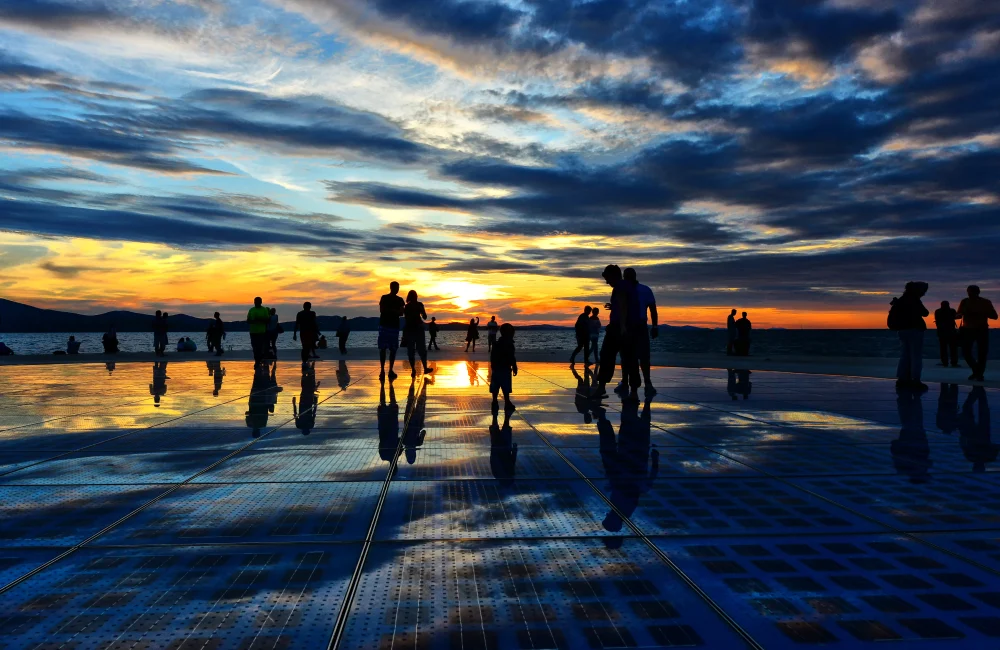
A multi-colored light display
Greeting to the Sun
At the tip of the peninsular near the Sea Organ, the Greeting to the Sun, also by Bašić, was installed in 2008. It comprises 300 glass plates, concealing light-sensitive solar modules set in the paving to form a large circle. Charged by the sun during the day, it delivers a spectacular solar-powered multi-colored light display each evening.

Text by Jane Foster